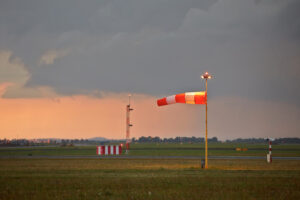The FAA is not immune from trouble with keeping up with aviation changes
My local FSDO recently underwent a complete reassignment of personnel, much to the delight of the local pilots who live and fly within their aviation airspace. The departing group of FAA inspectors had the reputation of being among the most difficult to work with in the country. They were often beyond difficult – at times, they were downright impossible.
However, I feel we just went from the frying pan into the fire. Our new inspectors are, well, just that, new. They are young, inexperienced, and uncertain. So when a pilot calls with a problem, the solutions are only sometimes readily available, which could be better.
Several members of Congress feel the same way. A panel of legislators met at NBAA-BACE 2022 to share their thoughts and concerns about the future of the FAA. They fear that technological advances in the aviation industry will outpace the FAA’s ability to keep up. Personnel shortages and inexperienced agents are at the forefront of the problem.
Changes are everywhere in the industry, and they are not small or insignificant. Major upheavals are on their way – changes in airspace, users of this airspace, single-pilot operations, autonomous vehicles, electric propulsion, and UAV advancements. As a result, the skies may look different within the next several decades. Congress wants to ensure that the FAA can maintain its ability to regulate all the new technology in a way that will keep the flying public safe while also staying proactive to the needs of the future.
One major problem they see is recruiting new talent for the FAA, whether it be for pilots or mechanics. Everyone knows there is a shortage of aviation workers, and salaries reflect that trend. I was recently offered a signing bonus of almost $200,000 to return to life as an airline pilot.
However, salaries within the FAA will need help competing with the private sector. Yes, the government can offer the perks of sleeping in your bed at night, but that may not be as enticing as it used to be. Even Part 135 charter companies acknowledge the importance of a balanced work/family relationship, so the FAA may have to develop some new carrots to dangle in front of potential employees.
The members of the NBAA-BACE panel are concerned that without a solid foundation of understanding regarding the changes coming to aviation airspace, the agency will become reactive to any growing pains they see. This always ends poorly for the innovators who are trying their best to make progress in whatever industry they are passionate about developing. Educating the FAA workforce about future technology will go a long way toward keeping them proactive and easy to work with.
RELATED READING









